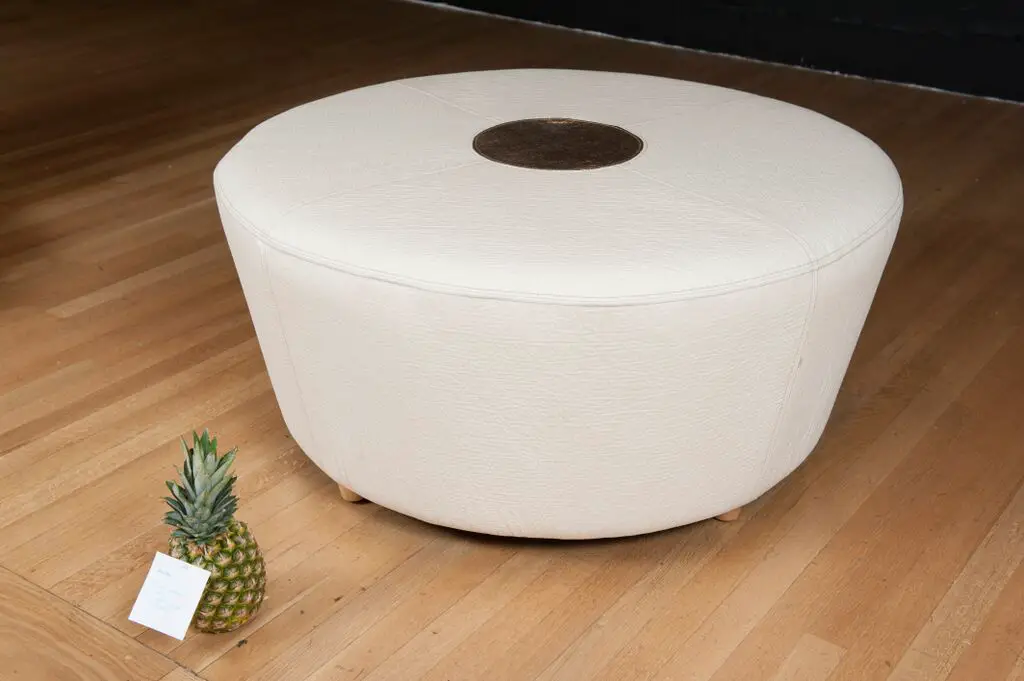As we take baby steps towards living more ethical lives, we start to notice that we are surrounded with an overwhelming list of issues that we need to address in order to thrive with nature and honestly do no harm. We may start out by reducing our meat and dairy consumption and as our sensitivity returns eventually swear it off altogether. Each of us is on our own path and is doing the best we can and that is why when a valid solution is given to a current problem we want to shout it from the mountaintops!
Leather use is still extremely common!
Leather, is an issue that many of us have been familiar with ever since we were children watching movies such as 101 Dalmations, and yet most of us don’t notice how often we use products made out of leather every day. Animal hides are easily recognized in situations such as hunting and fur coats but it is actually much more common than that. Common products such as vehicles, furniture, shoes, belts, books, shirts, some wallpaper, hats, and wallets are often made out of leather.
In a world where we would prefer to avoid plastic products as much as possible, it is awesome to know that someone has taken the time to use a recycling technique to introduce a new Vegan approved leather alternative.
Piñatex™ is the innovative product made by Ananas Anam
The new ‘leather’ was designed by Ananas Anam which has been created from a sustainable high performing natural textile which is made from plant fiber waste. Piñatex™ is located in the Philippines where they create the product out of pineapple leaf fibers.
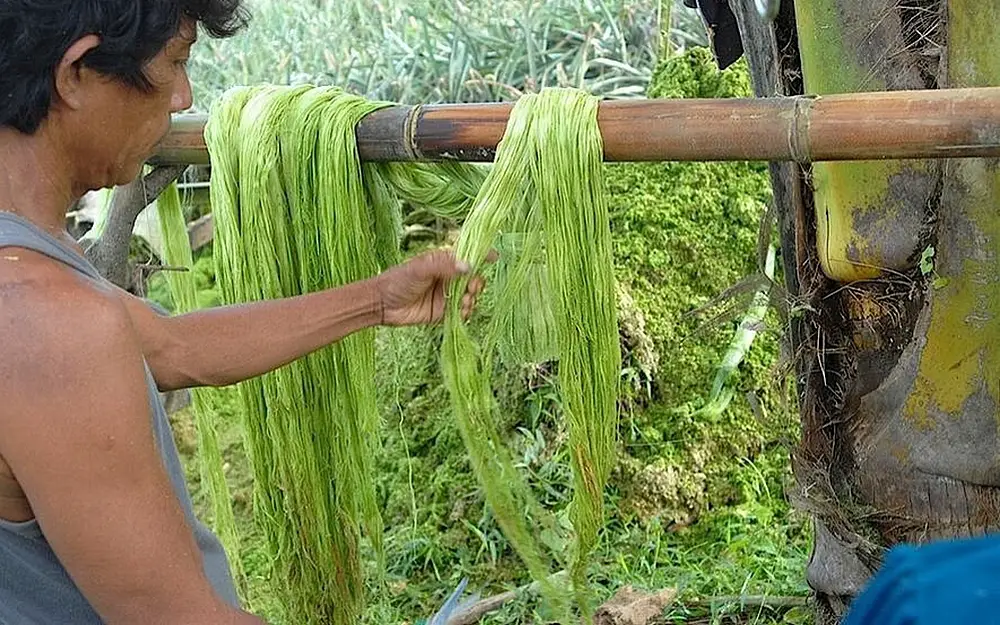
This awesome new approach is going to help support local farmers in a whole new way. Using a common waste product from pineapple farms in these growing countries the products will be made without any extra need for fertilizer, water, land or pesticides.
What an incredible idea to use something that is just being thrown away and instead craft it into a product we could use worldwide to stop the needless killing of animals for their skin. These products could be easily used in upholstery at home and in our cars, used for fashion accessories or clothing.
Check out this awesome infographic that shows us a breakdown of how the process works.
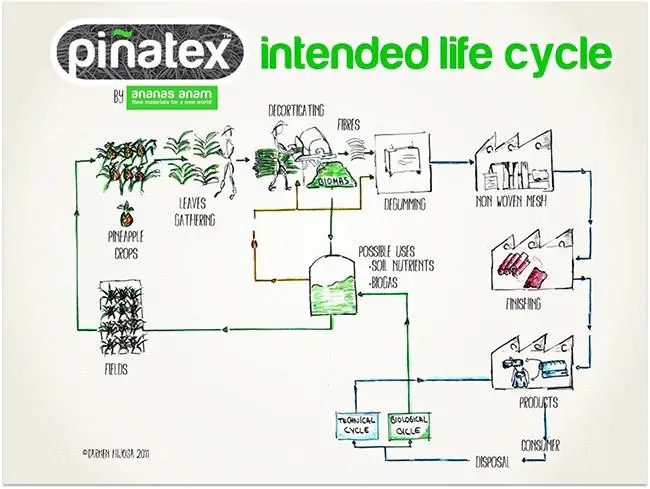
Decortication
When the pineapple leaves have their fibers extracted this process is known as decortication. This can be done on a local level within the community providing jobs and helping the locals. The remaining plant material that isn’t extracted can be used as an organic fertilizer and returned to its proper place in the earth.
The locals can use the organic fertilizer on their crops or sell it to make an additional income that can help promote sustainable organic farming in that region of the world.
After decortication, the fibers go through a process to be made into a ‘nonwoven textile’ which is what the vegan leather is made out of.
Leather is not only starting to be recognized worldwide as unethical but it is also becoming more scarce and expensive. This is unfortunately pushing the world towards the use of more plastic materials and we all know that plastic is already a major issue worldwide.
This is why the introduction of a sustainable textile that is super versatile, is just in time to help us shift into a more conscious world.
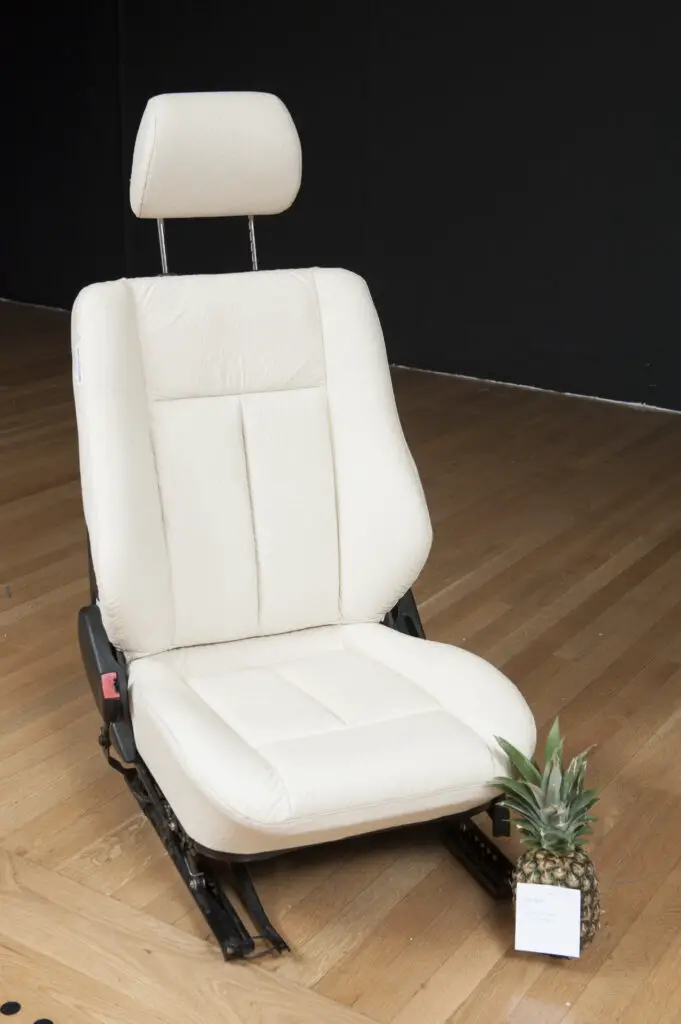
“Our vision is to develop textiles and textile materials that use processes that enhance the well-being of the earth and its people through the entire life cycle of the products. Our inspiration is the *Cradle to Cradle® approach, which supports ecological, intelligent and innovative design policies within today’s economic environment.” -ananas-anam.com
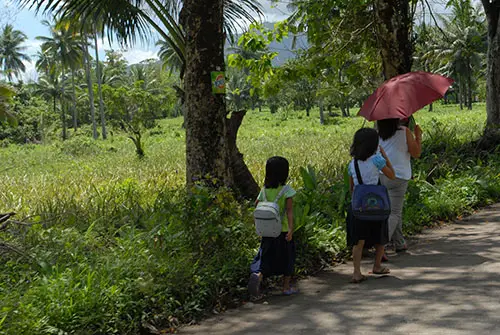
Carmen Hijosa is the Social Entrepreneur behind this brilliant design.
Carmen Hijosa founded Ananas Anam Ltd who was known for selling leather goods in Ireland in from 1978 to 1993. Knowing the industry she decided to start searching for a new approach that would provide for the world’s needs without using the traditional leather.
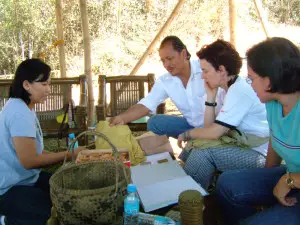
Back in the 90’s Hijosa decided to take a consulting position in the Philippines where she worked in a design center with product development. This is when she learned that pineapple leaf fibers could be used for so much more than they already were.
The pineapple leaf is both strong and has a fine quality making it an ideal alternative to leather. She spent the next several years perfecting her method which is when Piñatex™ was formed.
Hijosa and the other members of the Ananas Anam Ltd tell us that they are a diverse group of people with a wide variety of skills, backgrounds, and nationalities. Their goal is to develop textiles that are not only natural but they have a positive impact on the product world.
So you may have some questions specifically about the product. Here are some important points covered on their website.
Is Piñatex™ a form of leather?

No, leather is made out of animal skin. Piñatex™ is a textile made from pineapple leaf fibers that after being finished can take on a similar texture and finish as traditional leather. This product is a vegan product that is both natural and safe.
Are you sure Piñatex™ is 100% animal free?
Yes, Piñatex™ assures us that there is no animal products or by-products used in the process of making this product.
Is this process Sustainable?

One of the most important parts of this whole plan was to create a product that is 100% sustainable. This is the founding principle of the company.
Since the pineapple leaves are a leftover byproduct of the pineapple harvesting process there are plenty of materials to go around and there is no need to plant more pineapples. This process just makes the waste products more valuable to the farmers and creates more opportunities for local farmers to support their communities.
Is the Piñatex™ product biodegradable?
Yes, as part of the research and development it was determined that this product does biodegrade, unlike many plastic materials.
What an incredible way to make a huge difference in our world. Thank you Carmen Hijosa for spending so many years of your life in search for an actual solution for the textile industry.
Sources-
Image credit: ananas-anam.com



